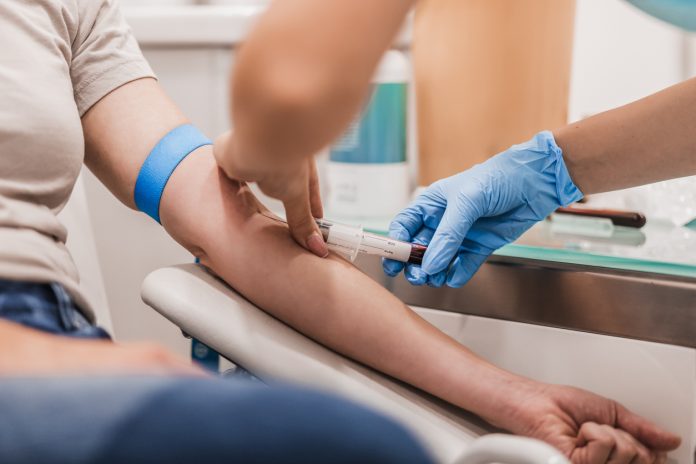In a significant advancement for breast cancer treatment, a new blood test has shown the ability to predict the recurrence of breast cancer up to three years before tumours become detectable through conventional scans
This development is seen as a major step forward in the fight against breast cancer, potentially offering a lifeline to millions of women diagnosed with the disease each year.
The risk of breast cancer
Breast cancer remains the most common cancer among women worldwide, with over two million new cases annually. Despite improvements in treatment, many patients face the risk of cancer returning, often at a more advanced and difficult-to-treat stage. The new blood test, a type of liquid biopsy, aims to change that by offering an early warning system for cancer recurrence.
The liquid biopsy detects tiny fragments of cancer DNA, known as circulating tumour DNA (ctDNA), in the bloodstream. This method is significantly more sensitive than previous tests, which relied on detecting a smaller number of genetic mutations. The new test employs whole genome sequencing, searching for 1,800 mutations, increasing its sensitivity and accuracy.
Testing blood sample to reveal risk reccuring of breast cancer
In a trial conducted by researchers at the Breast Cancer Now Toby Robins Research Centre in London, blood samples from 78 breast cancer patients were analysed.
The test successfully identified all 11 patients who experienced a relapse during the five-year study. It also correctly indicated that the 60 patients who did not show signs of ctDNA did not experience a recurrence, demonstrating any false negatives. This high level of accuracy suggests that the test could be a reliable tool for early detection of cancer recurrence.
The ability to detect cancer relapse well before traditional symptoms or signs appear offers the possibility of starting treatment much earlier. Early intervention is crucial as it significantly increases the likelihood of effectively destroying cancer cells before they can spread to other parts of the body, where they become much harder to treat.
This innovative test was presented at the American Society of Clinical Oncology annual meeting in Chicago, gaining attention from the global medical community. Researchers hope that the findings will lead to widespread adoption of the test, allowing more women to benefit from early detection and preventive therapy.
Additionally, the NHS is currently trialling a similar blood test known as the Galleri test, developed by Californian company Grail. This test can detect over 50 types of cancer and has shown promise in identifying hard-to-detect cancers like the head and neck, bowel, lung, pancreatic, and throat. Initial results from this trial are expected soon, with the potential for broader implementation if successful.











